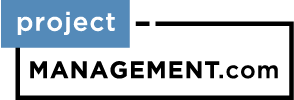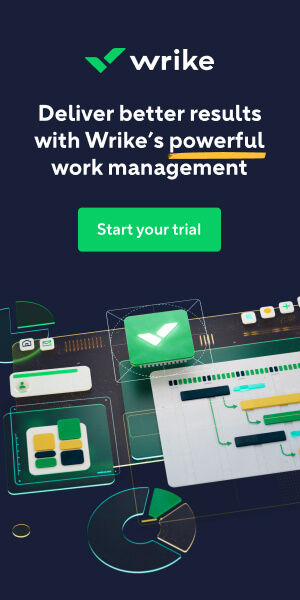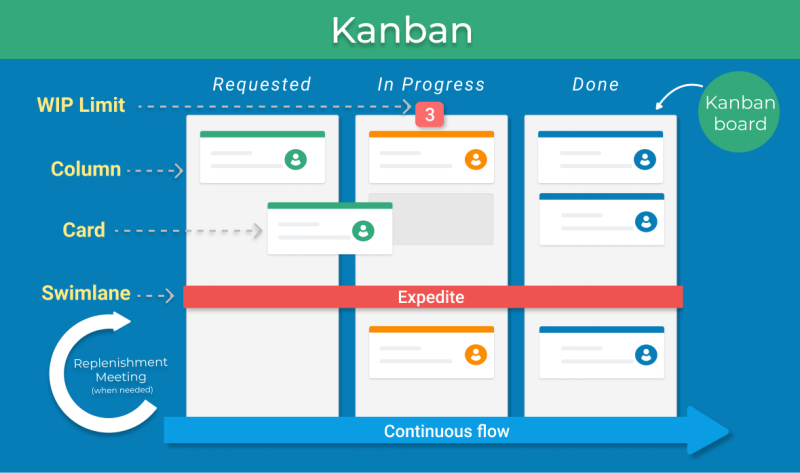Sales professionals use customer relationship management (CRM) software to keep track of their prospects and clients. It stores and organizes client information, sends reminders and automated emails, facilitates team communication, tracks performance, and generates reports among other things.
What not a lot of project managers know, though, is that CRMs are very versatile. The platform’s powerful features can help you stay on top of your projects, teams, and stakeholders, so you can achieve project success. Here are the ways CRM software can help you in project management.
Read more: Best CRM for Project Management
Task Management
One thing that projects and sales have in common is they’re immensely action-oriented. Maintaining relationships entails many actions — reaching out, following up, updating, and closing.
As for projects, completing deliverables and achieving milestones are all about taking strategic action day in and day out. It comes as no surprise, then, that CRMs come with task management functionalities. They allow you to assign tasks to specific people, which raises accountability and helps sales or project teams complete their duties.
Important Reminders
In an ideal world, all team members can focus entirely on the task at hand while being keenly aware of all looming milestones and deadlines. But in reality, most people don’t have enough mental bandwidth. When you zone in into an important task, everything else becomes background noise.
Blocking out information that you don’t need at present is an invaluable task when taking on a mentally exhausting activity. So, as a project manager, you will have to exert effort in reminding and constantly communicating with your team.
CRM software can help you set regular reminders to raise your team’s awareness of upcoming submissions. Automate these to make sure everyone’s always aware of the team’s priorities without you having to hound them about it.
Data Storage and Organization
One of the main functions of CRM for sales teams is ensuring that all customer details and communications are stored and organized.
This feature can be convenient in project management, too. Maximizing a CRM’s data storage and organization features provides you with a convenient way to record progress and document decisions, findings, changes, and others. This way, you and your team can recall and evaluate how your project has evolved.
Read more on CIO Insight: Most Important CRM Software Requirements
Automatic Updates and Notifications
One of the ways that sales teams maximize their CRM software is by organizing their customers’ journeys and assigning people in charge per stage. For groups that require regular turnovers, this facilitates coordination among stakeholders, providing a cohesive experience for their customers.
In project management, you can use this feature to send notifications to designated team members and clients whenever a task moves into their area of responsibility.
Encourage Collaboration
CRM software such as Salesforce has features like “Chatter.” It’s a Facebook-style news feed that allows your team members to post a message, and others can respond. This can be a great avenue to discuss important issues and encourage collaboration.
You can also use message boards as an announcement board. For non-urgent reminders, it’s an asynchronous way to update your teams without breaking their concentration as they work.
Monitor Progress and Performance
One of the most valuable features of CRM tools for project managers is probably the dashboard. At a glance, you’ll have an overview of everything that’s happening in your project: expenses, completion rate, team productivity and hours, and much more.
If you’re using your CRM software to track your project, you can use your dashboard to spot inefficiencies and opportunities for process improvement. It also helps you anticipate issues before they happen, so you can flag them and request support if it’s needed.
Data Visualization and Reporting
As a project manager, there’s a high chance that you’re working with several stakeholders, each with their own priorities and expectations. Submitting custom reports tailored to their concerns is an excellent way to build trust, rapport, and delight.
But of course, this can be time-consuming when done manually. It requires you to spend hours selecting, composing, organizing, and editing your reports. So more often than not, it’s wiser to send a generic one and allow the stakeholders to pick out which pieces of information are vital for them.
CRM software like monday.com provides multiple work views. With just a few clicks, you can view the same data set on a Gantt chart, timeline, calendar, or board. This flexibility allows you and your team to work according to your needs and preferences. It also makes it easy for you to generate reports for your stakeholders.
Conclusion
CRM tools are highly versatile pieces of software you can use for project management, as well as sales. Sales teams use CRM tools to facilitate communication and help people work together to achieve a unified goal. Maximizing these features for task management, data visualization, communication, and others is a great way to build your effectiveness and efficiency as a project team.
Read next: 5 Phases of Project Management Life Cycle You Need to Know












